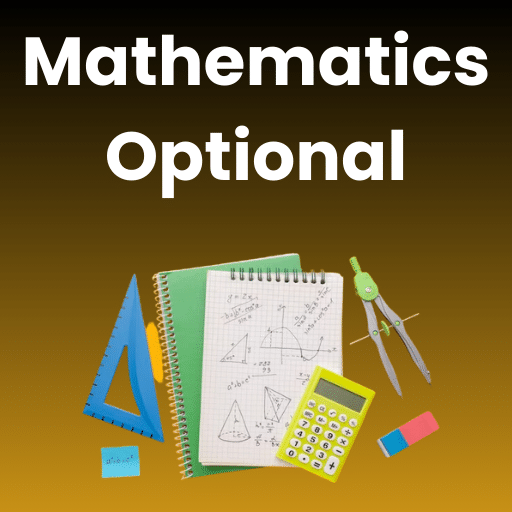
|
PARTNER COURSE
Mathematics Optional Notes for UPSCAcademic Studio · Last updated on Oct 06, 2025 |
|
Join for Free
|
|
|
Course Analysis
Tests and Content Analysis

|
Content Viewed -- |

|
Tests Attempted --.-- |

|
Total Attempted Questions --.-- |

|
Total Time on Tests --.-- |

|
Correct : Incorrect Questions --.-- |

|
Average Time Per Question --.-- |

|
Average Rank --.-- |

|
Average Percentile --.-- |

|
Average Accuracy --.-- |
Tests Score analysis
Tests Accuracy analysis
Tests Questions analysis





Mathematics Optional Notes for UPSC Books
Mathematics Optional Notes for UPSC PDF Download
Mathematics Optional Notes for UPSC Previous Year Papers
Important Questions for Mathematics Optional Notes for UPSC

Contact Support
|
Free Exam Preparation
at your Fingertips!
Access Free Study Material - Test Series, Structured Courses, Free Videos & Study Notes and Prepare for Your Exam With Ease

 Join the 10M+ students on EduRev
Join the 10M+ students on EduRev
|

|







